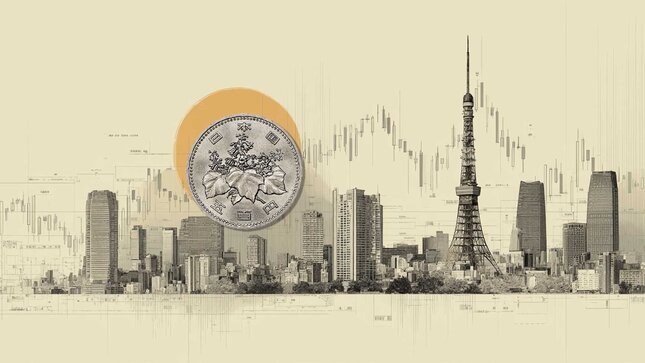Traders are always looking for an edge when it comes to making a profit. Some swear by
technical analysis by studying charts and applying specific combinations of indicators and drawing tools. But others insist that trading success comes from fundamental analysis. This means being aware of any sudden developments like comments from central bankers, changes in bond yields, the inflation outlook, and movements in the political landscape. Where an individual stock is concerned, this analysis would involve studying the company accounts, comparing these with other corporations in the same sector, being fully informed about news concerning the business and its executives, as well as anything more broadly that could affect trading conditions.
But in a world where investors measure their performance by creating alpha — that is, outperforming the standard stock indices — many now look to alternative data to give them an edge. This can be anything beyond the standard measures already available to investors, potentially providing a more nuanced insight into company performance than traditional data sources.
Hedge funds would previously seek to gain an advantage over the competition by employing unusual methods to collect such information, like counting how many customers would leave a particular store with a purchase. But over the past decade, alternative data collection has become far more sophisticated and complex due to the growth in computing power, helped along by the increased take-up of the smartphone. In fact, with so much data being collected, the trick is sorting out the wheat from the chaff; analysing what is important while dumping the rest.
Where does alternative data come from?
Alternative data comes from a variety of sources, such as tech companies, academic research and online brokers themselves. Some of the most commonly used alternative data sets regard consumer spending, which can be scraped from apps, social media, websites, and online surveys. The cheapest data is collected and sold on in a raw form, but it can also be analysed by bespoke research outfits and delivered in a more distilled format.
Corporate data would include spending on credit and debit cards, where good sources would be car sales, online commerce, airline, and travel bookings — or even online brokers. Just consider the Robinhood trading app. While billed as a ‘commission-free’ brokerage, Robinhood bundles up its customers’ trades and sells them on to its prime broker. This ‘payment for order flow’ gives the prime broker advance notice of what Robinhood’s retail customer base is buying and selling. It may not be ‘alternative’ by a purist’s definition, but it is very useful data indeed.
How useful is social media for alternative data?
Social media is an incredibly valuable source of alternative data. Consider how often stories and topics circulate on social channels well before they are picked up by traditional mainstream news outlets.
Consider also how often we now hear from influential sources on social media. Before he was banned, former US President Donald Trump was never off Twitter — we found out what the US president was thinking from Twitter, rather than waiting for official policy
announcements or a presidential press briefing. Trump may have gone, but Elon Musk, the head of Tesla, hasn’t. Elon isn’t as prolific as Mr. Trump used to be, but his tweets are often market-moving, thanks to his lack of discretion and complete disregard of the Securities and Exchange Commission (SEC).
This is one of the beauties of alternative data in that it can harvest thoughts from unconventional thinkers. This, in turn, can help you think outside the box, which is why at Trade Nation, we have developed Smart News, our own customisable source of alternative data based on social media. Once you delve into the details, you could profit from an early insight that the market hasn’t yet woken up to.
What is the future of alternative data?
Traders are always looking for an edge so they can buy and sell ahead of the crowd and get the best price. Without a doubt, both technical and fundamental analysis will continue to play a major role in this. However, alternative data has also been available to a small band of traders for some years now. With the collection and analysis of data easier and quicker than ever, alternative data will keep growing in popularity as more and more traders discover its value.
Financial spread trading comes with a high risk of losing money rapidly due to leverage. You should consider whether you can afford to take the high risk of losing your money.
Editors’ Picks

EUR/USD: US Dollar to remain pressured until uncertainty fog dissipates Premium
The EUR/USD pair lost additional ground in the first week of February, settling at around 1.1820. The reversal lost momentum after the pair peaked at 1.2082 in January, its highest since mid-2021.

Gold: Volatility persists in commodity space Premium
After losing more than 8% to end the previous week, Gold (XAU/USD) remained under heavy selling pressure on Monday and dropped toward $4,400. Although XAU/USD staged a decisive rebound afterward, it failed to stabilize above $5,000.

GBP/USD: Pound Sterling tests key support ahead of a big week Premium
The Pound Sterling (GBP) changed course against the US Dollar (USD), with GBP/USD giving up nearly 200 pips in a dramatic correction.

Bitcoin: The worst may be behind us
Bitcoin (BTC) price recovers slightly, trading at $65,000 at the time of writing on Friday, after reaching a low of $60,000 during the early Asian trading session. The Crypto King remained under pressure so far this week, posting three consecutive weeks of losses exceeding 30%.

Three scenarios for Japanese Yen ahead of snap election Premium
The latest polls point to a dominant win for the ruling bloc at the upcoming Japanese snap election. The larger Sanae Takaichi’s mandate, the more investors fear faster implementation of tax cuts and spending plans.
RECOMMENDED LESSONS
Making money in forex is easy if you know how the bankers trade!
I’m often mystified in my educational forex articles why so many traders struggle to make consistent money out of forex trading. The answer has more to do with what they don’t know than what they do know. After working in investment banks for 20 years many of which were as a Chief trader its second knowledge how to extract cash out of the market.
5 Forex News Events You Need To Know
In the fast moving world of currency markets where huge moves can seemingly come from nowhere, it is extremely important for new traders to learn about the various economic indicators and forex news events and releases that shape the markets. Indeed, quickly getting a handle on which data to look out for, what it means, and how to trade it can see new traders quickly become far more profitable and sets up the road to long term success.
Top 10 Chart Patterns Every Trader Should Know
Chart patterns are one of the most effective trading tools for a trader. They are pure price-action, and form on the basis of underlying buying and selling pressure. Chart patterns have a proven track-record, and traders use them to identify continuation or reversal signals, to open positions and identify price targets.
7 Ways to Avoid Forex Scams
The forex industry is recently seeing more and more scams. Here are 7 ways to avoid losing your money in such scams: Forex scams are becoming frequent. Michael Greenberg reports on luxurious expenses, including a submarine bought from the money taken from forex traders. Here’s another report of a forex fraud. So, how can we avoid falling in such forex scams?
What Are the 10 Fatal Mistakes Traders Make
Trading is exciting. Trading is hard. Trading is extremely hard. Some say that it takes more than 10,000 hours to master. Others believe that trading is the way to quick riches. They might be both wrong. What is important to know that no matter how experienced you are, mistakes will be part of the trading process.
The challenge: Timing the market and trader psychology
Successful trading often comes down to timing – entering and exiting trades at the right moments. Yet timing the market is notoriously difficult, largely because human psychology can derail even the best plans. Two powerful emotions in particular – fear and greed – tend to drive trading decisions off course.


